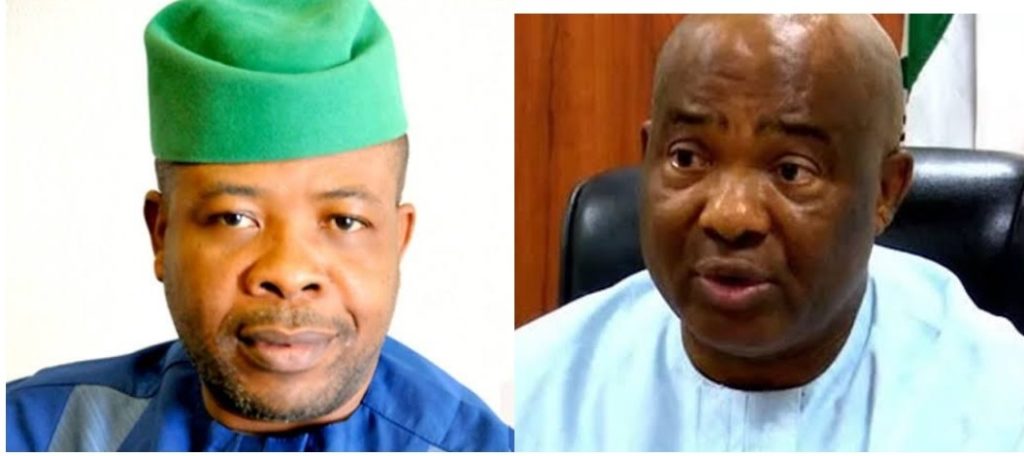There is anxiety in Imo State as the Supreme Court begins hearing today in the application for the review of its January 14 judgment that removed Emeka Ihedioha from office as the governor.
Ihedioha, of the Peoples Democratic Party (PDP), through his lead legal team, Kanu Agabi (SAN), approached the apex court to reverse the judgment in which it ordered the Independent National Electoral Commission (INEC) to withdraw the certificate of return issued to Ihedioha and issue it to Senator Hope Uzodinma of the All Progressives Congress (APC). The court relied on the admission of the votes from the 388 polling units, the computation of which made Uzodinma to be declared as the winner.
During the court’s sitting on the 18th of February, Agabi asked for an adjournment to enable his client to file more processes. It was granted and the case was adjourned to March 2.
Last week, Ihedioha’s supporters led by the Director-General of the Ihedioha 2019 Campaign and immediate past Commissioner for Health, Dr. Vin Udokwu, held a prayer session at the Kanu Nwankwo Sports Centre, Owerri, seeking divine intervention to restore Ihedioha to power. A similar activity was going on in Uzodinma’s camp.
Recall that Uzodinma has appointed nine special advisers and postings of 22 permanent secretaries, among others. He is also hopeful of emerging victorious at the apex court at the end of the day.
However, ahead of today’s review, Ihedioha said his appeal has merit and is different from the Bayelsa election ruling, in which the apex fined APC counsels for asking it to review its decision sacking David Lyon because his deputy had multiple names.
He argued through his lead counsel and former Attorney-General of the Federation and Minister of Justice, Kanu Agabi (SAN) that, “the application is not an academic exercise or an invitation to this honourable court to answer hypothetical questions as the issue of nullity of the judgement of January 14 is neither academic nor hypothetical.
“Contrary to the deposition by Governor Hope Uzodinma, he (Uzodinma) never stated the results of the other 68 candidates that participated in the election at the 388 polling units, as their scores were not indicated anywhere by the appellants.
“Contrary to the depositions by the respondents, there is nowhere in the judgement of this honourable court delivered on January 14 in which the decision of the lower court striking out the petition for incompetence was set aside or upturned.
“On the contrary, the judgement of this honourable court only set aside the judgement of the lower court affirming the judgement of the governorship election tribunal. The order of the lower court striking out the petition was not an affirmation of any decision of the governorship election tribunal.
“That the failure to state the results of the other 68 candidates that participated in the election in the disputed 388 polling units and the 1st appellant/respondent’s (Uzodinma) admission under cross-examination of allocating to himself more votes than the total registered voters in the identified units are all manifest on the face of the record of the Supreme Court.
“That no evidence was led as to how Governor Uzodinma satisfied the mandatory spread required under Section 179(2) of the 1999 Constitution.
“That while Uzodinma and his APC claimed that results from 388 polling units were excluded which this court ordered to be added to him, PW54, whose evidence they relied upon, testified that he came to tender results of only 366 polling units.
“Under cross-examination, PW54 admitted that the result he tendered was even less than the number (366) he alleged he had come to tender.
“Even going by the number of 366 polling units stated by PW54, nothing in the judgement of this court explained the difference, particularly the number of votes in 22 polling units that the appellants/respondents misled this court to add to the 366 polling units to make up the 388 polling units.”
